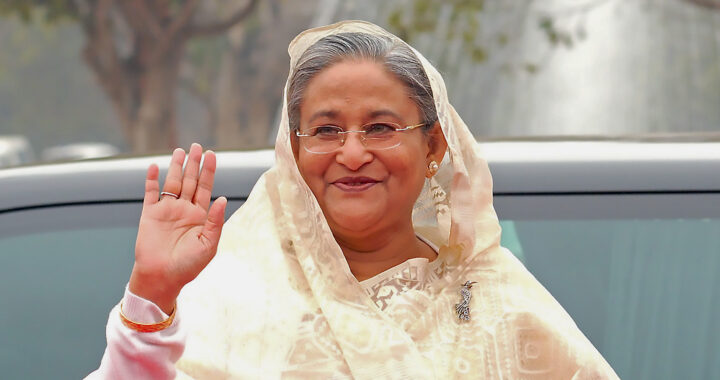The International Crimes Tribunal of Bangladesh delivered a landmark judgment on 17 November 2025 when it found former prime minister Sheikh Hasina and former home minister Asaduzzaman Khan Kamal guilty of crimes against humanity following violent nationwide protests that unfolded during July and August 2024.
Sheikh Hasina Guilty Verdict: Bangladesh Confronts Past Abuses Through Controversial Crimes Against Humanity Ruling
A landmark tribunal ruling in Bangladesh reshapes the national narrative as former prime minister Sheikh Hasina and former home minister Asaduzzaman Khan Kamal receive death sentences for crimes against humanity.
Crime Against Humanity Ruling
The tribunal stated that security forces and allied groups conducted systematic attacks on unarmed demonstrators, resulting in an estimated 1400 deaths according to a United Nations assessment, and determined that high-level authorities ordered the deployment of drones, helicopters, and lethal weapons against large crowds during moments.
Judges anchored their 453-page decision on Article 7 of the Rome Statute and concluded that coordinated attacks represented a widespread and systematic assault on civilian populations. Testimony from survivors and expert witnesses described patterns of excessive force and deliberate actions that exceeded lawful standards during the nationwide unrest.
Note that three specific illegal killing incidents were cited. These were the murder of certain protesters, the use of lethal weapons in several locations, and negligence or inaction to stop or punish the ongoing violence. Included in the ruling is an emphasis on how government forces bore superior command responsibility and how they failed to punish those responsible.
The tribunal sentenced Sheikh Hasina and Asaduzzaman Khan Kamal to death in absentia after determining that both officials exercised superior command responsibility and failed to prevent unlawful killings or punish those responsible. Chowdhury Abdullah Al Mamun received a reduced five-year sentence after cooperating with investigators.
A complaint alleging crimes against humanity was first filed with the investigation agency of the tribunal following the July-August 2024 protests. A report was submitted to the state prosecutor on 12 May 2025, and the prosecution then produced a 135-page charge sheet with 8747 pages of supporting documents. Formal charges were filed on 1 June 2025.
Further Context and Reactions
Hasina served as the 10th prime minister of Bangladesh from 1996 to 2001 and was able to reclaim the office from 2009 to 2024. She was the longest-serving prime minister of the country since its independence and the longest-serving female head of government in the world. Her second term was characterized by dictatorial and oligarchical rule.
A mass protest began beginning 1 July 2024. This later became the July Revolution. It began as a student-led movement against the quota rule of government jobs in early June 2024. The protest escalated into a full-fledged mass uprising and was labeled as the first Gen Z revolution after the government carried out mass killings of protesters by late July.
Hasina resigned without an official speech on 5 August 2024 as a large crowd of demonstrators surrounded her official residence. She fled to India later that day. The disgraced prime minister later accused the United States of meddling. She released her first official statement on August 13. It included a call for an investigation into the July incident.
The United Nations Office of the High Commissioner for Human Rights released an official report on 12 February 2025 on the incidents of the July Revolution. Included in the document is a death toll of about 1400. The then interim government of Bangladesh also noted more than 20000 were wounded. More than 400 students had lost their eyesight.
Both the U.N. and the Human Rights Watch have condemned the brutal July Revolution incident, but have also noted concerns over the International Crimes Tribunal of Bangladesh ruling due to procedural standards. Note that the tribunal was created by Hasina herself in 2010 to investigate and try crimes related to the 1971 Bangladesh Liberation War.
FURTHER READING AND REFERENCE
- United Nations Office of the High Commissioner for Human Rights. 12 February 2025. OHCHR Fact-Finding Report: Human Rights Violations and Abuses related to the Protests of July and August 2024 in Bangladesh. United Nations. Available via PDF
- Human Rights Watch. 17 November 2025. “Bangladesh: Hasina Found Guilty of Crimes Against Humanity.” Human Rights Watch. Available online
